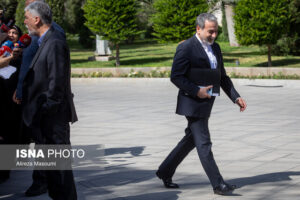“We do not recognize the snapback as coming into force,” Vassily Nebenzia said at a press conference on Wednesday marking the start of Russia’s presidency of the UN Security Council for October, Press TV reported.
He also censured the Western countries for initiating the illegal snapback procedure despite being themselves “serial violators” of Security Council Resolution 2231, which endorsed the 2015 Iran nuclear deal, officially known as the Joint Comprehensive Plan of Action (JCPOA).
The Western states claim to be open to diplomacy, but they “forfeited a diplomatic solution” by activating the snapback, he added.
“So we’ll be leaving in two parallel realities because for some, ‘snapback’ happened. For us, it didn’t. That creates a problem. How will we get out of it? Let’s see.”
Nebenzia further noted that Moscow is not happy with the UN chief, who rushed to implement a legally flawed resolution regarding the reinstatement of Security Council sanctions on Iran, which had been previously terminated under the US-abandoned JCPOA.
On August 28, the UK, Germany, and France (collectively known as the E3) invoked the snapback mechanism, a 30-day process to restore all anti-Iran sanctions.
Tehran rejected the move as illegitimate, citing the US’s unilateral withdrawal from the JCPOA in 2018 and the European trio’s decision to align with unlawful sanctions rather than fulfilling their JCPOA obligations.
An 11th-hour effort by Russia and China aimed at giving diplomacy more time to resolve Iran’s nuclear issue failed to win enough votes at the Security Council on September 26.
Two days later, the US and the Europeans alleged that the anti-Iran UN resolutions and the associated sanctions were re-imposed, urging all UN member states to implement the restrictive measures.







